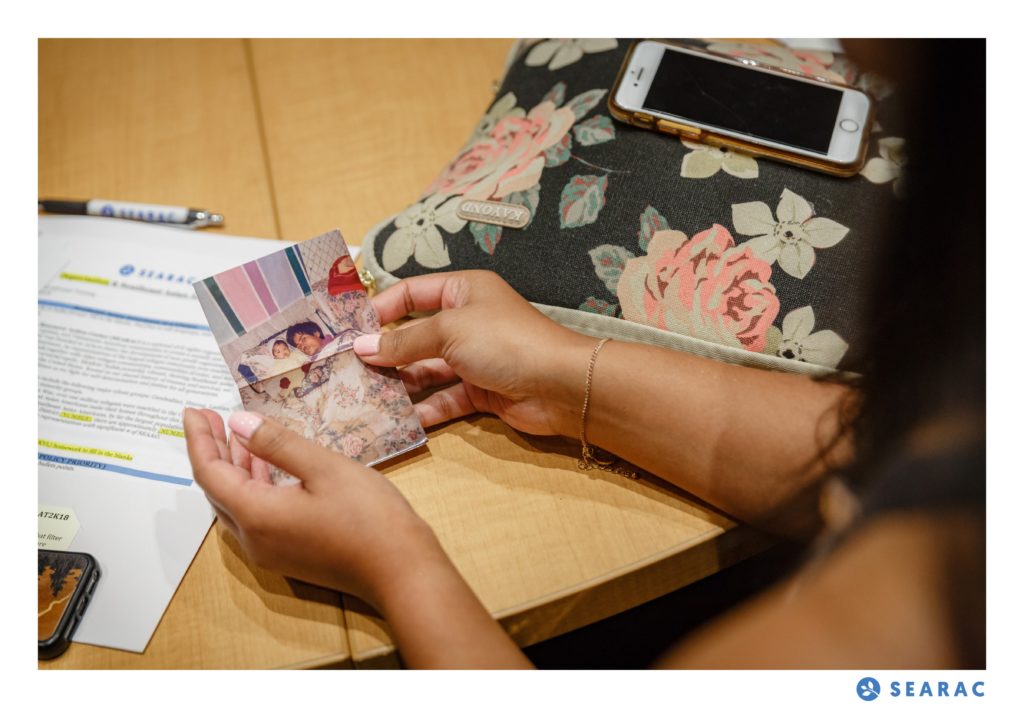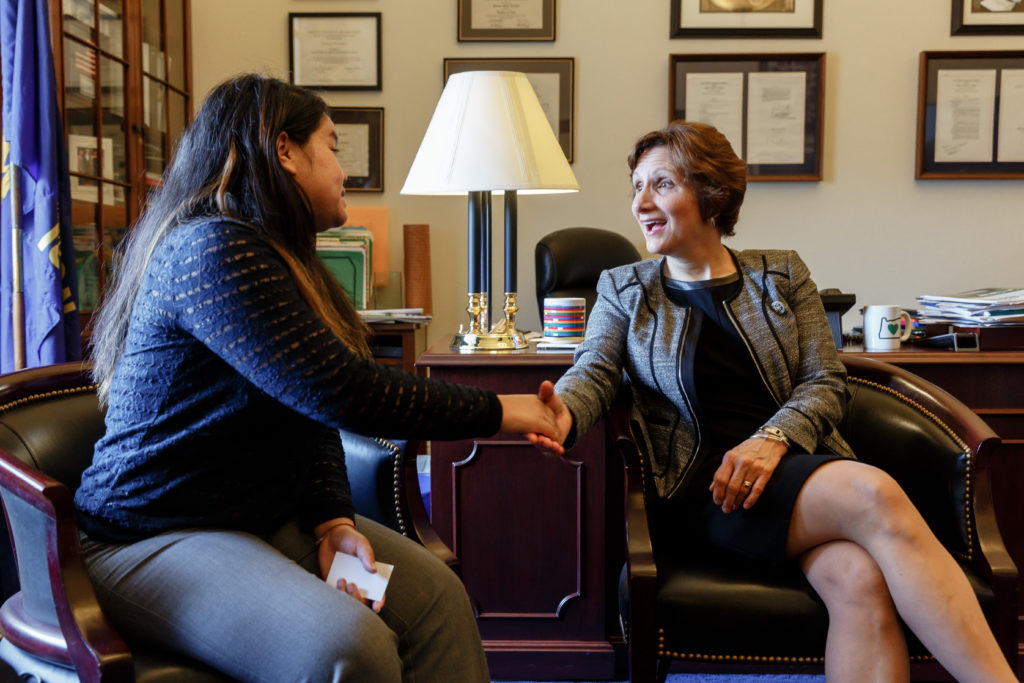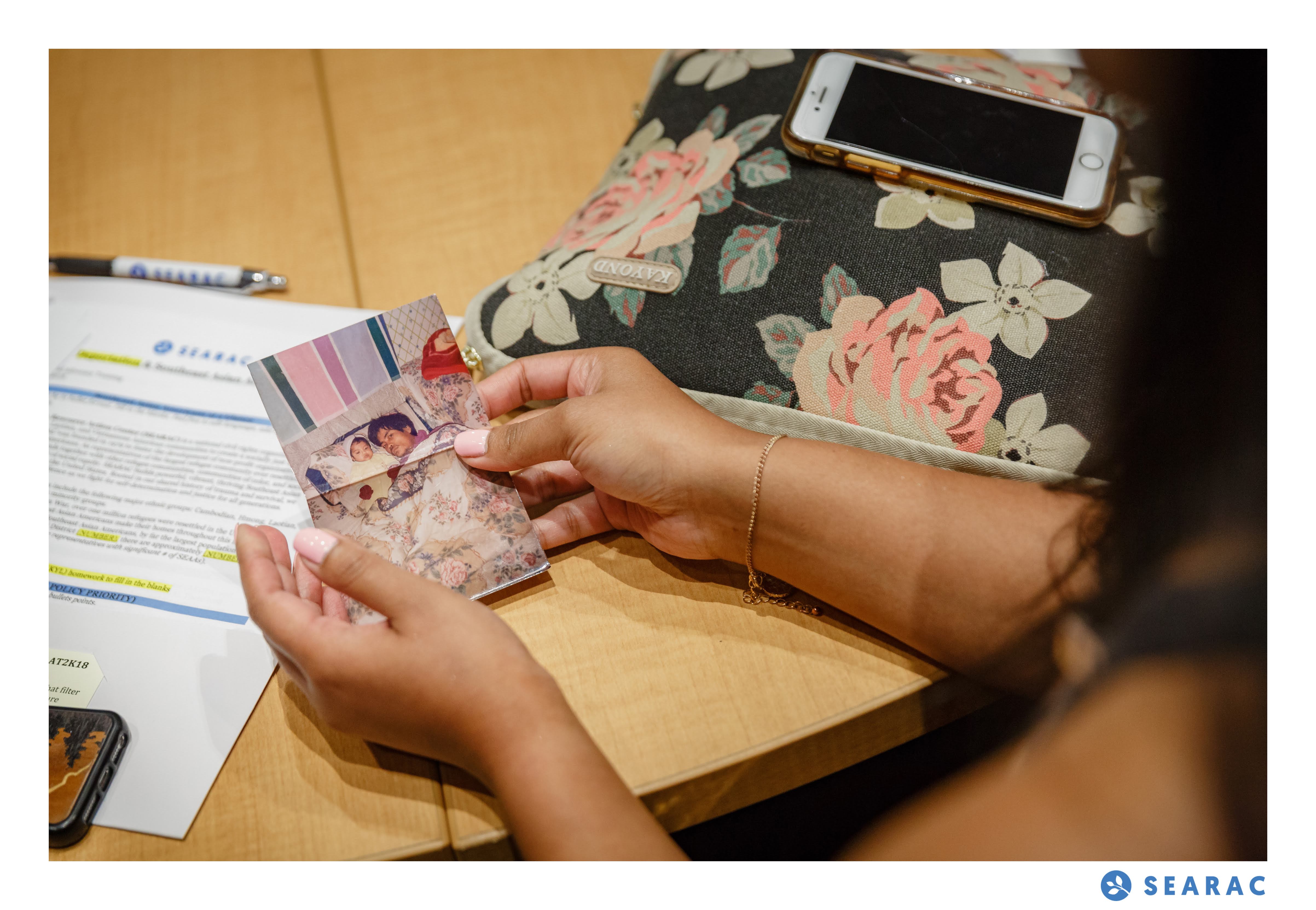by Alyssa Tulabut, Training Manager, Southeast Asia Resource Action Center (SEARAC).

Stories have been described as “the single most powerful weapon in a leader’s arsenal.” Social psychologist Jonathan Haidt wrote, “The human mind is a story processor, not a logic processor.” These sentiments particularly seem to resonate under an administration that weaves tall tales and spreads misinformation tweet after tweet. Stories have the power to make people feel, and unfortunately for advocates of immigrant and refugee communities, the narratives being circulated have been carefully crafted to stoke fear and to label some communities as untrustworthy “others.” As we’ve witnessed over the past couple years, effective storytelling can have very real consequences. That’s why we set out to teach community members to reclaim the power of story and to harness the power of narrative for positive change through the Southeast Asia Resource Action Center’s annual Leadership and Advocacy Training (LAT). Celebrating its 20th year this June, our LAT program trains and empowers Southeast Asian Americans to become effective changemakers for their communities.
If anything can bridge the seemingly vast gap between policymakers and changemakers, stories have the power to resonate across generations, ethnicities, and sometimes even party lines. For example, upon sharing her story with people of all types of backgrounds and beliefs on the campaign trail, Former First Lady Michelle Obama reflected, “It’s hard to hate up close.” As so, we challenge our community members to dive deep and share the stories that can truly change hearts (and hopefully, in turn, policies).

These stories are rooted in family. And while we can only accept roughly 50 participants each year, the presence of parents, grandmothers, uncles, younger sisters, second cousins, and great aunts in the room is palpable. Each person carries others with them. In this way, advocacy is truly intergenerational, forged in our ancestors’ grit and driven by a desire to create the world we want to see for our elders, ourselves, and our future generations.
Coming into the training, participants are often anxious about what seems like a hefty challenge — sitting down with their local legislators and their staff and making a connection. However, when LAT culminates on Capitol Hill with folks meeting with their elected officials, we witness the transformation of community members into compelling storytellers advocating for a more just future, truly living out their ancestors’ wildest dreams.Through common ground,elected officials can be moved to a become policy champions pushing for positive change.
Author Eric Morgenstern wrote, “You may tell a tale that takes up residence in someone’s soul, becomes their blood and self and purpose. That tale will move them and drive them and who knows what they might do because of it, because of your words. That is your role, your gift.” SEARAC is simply blessed to be able to help folks claim their role as changemakers and the inherently powerful gift of their stories.
For more information and to apply for the 2019 Leadership and Advocacy Training program, visit www.searac.org/lat. Applications are due by February 28th.
The opinions expressed in this article are those of the author and do not necessarily reflect those of the Diverse Elders Coalition.

